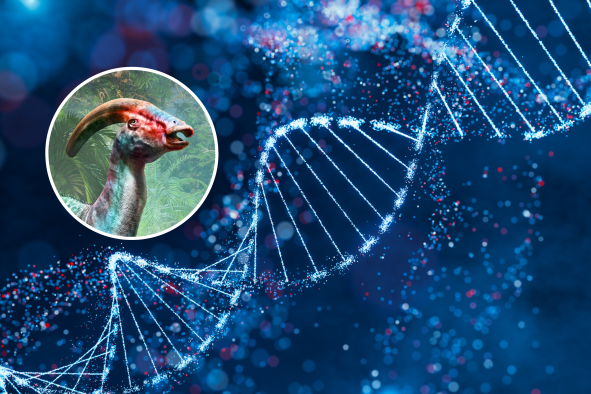Archaeologists have unearthed a "spectacular" discovery at Mount Vernon, the former residence and plantation of George Washington, uncovering a collection of artifacts that likely have not seen the light of day since the Revolutionary War.
During a $40 million revitalization project of the mansion at the historic estate, which is located in Virginia just 15 miles south of Washington, D.C., researchers discovered 35 glass bottles from the 18th century in the cellar.
Of the 35 bottles spread across five storage pits, 29 are intact. They contain perfectly preserved fruits, including cherries, gooseberries, and currants that are likely around 250 years old.
The latest find comes soon after two intact 18th-century glass bottles containing liquid, cherries and pits were uncovered in the cellar.
"Never in our wildest dreams did we imagine this spectacular archaeological discovery," Doug Bradburn, president and CEO of the Mount Vernon estate, said in a press release. "We were ecstatic last month to uncover two fully intact 18th-century bottles containing biological matter. Now we know those bottles were just the beginning of this blockbuster discovery."
"To our knowledge, this is an unprecedented find and nothing of this scale and significance has ever been excavated in North America," Bradburn said. "We now possess a bounty of artifacts and matter to analyze that may provide a powerful glimpse into the origins of our nation, and we are crossing our fingers that the cherry pits discovered will be viable for future germination. It's so appropriate that these bottles have been unearthed shortly before the 250th anniversary of the United States."
The glass bottles' contents have been extracted and are being kept refrigerated. Scientists plan to analyze them to yield more information. Once they have fully dried, the bottles themselves will be sent away for conservation.
"These artifacts likely haven't seen the light of day since before the American Revolution, perhaps forgotten when George Washington departed Mount Vernon to take command of the Continental Army. This means the bottles are extremely fragile and require the utmost care," Bradburn said.
The discovery of the glass bottles could shed light on life at the estate and the history of 18th-century America more generally.
"These extraordinary discoveries continue to astonish us. These perfectly preserved fruits picked and prepared more than 250 years ago provide an incredibly rare opportunity to contribute to our knowledge of the 18th-century environment, plantation foodways, and the origins of American cuisine," Mount Vernon principal archaeologist Jason Boroughs said in a press release.
"The bottles and contents are a testament to the knowledge and skill of the enslaved people who managed the food preparations from tree to table, including Doll, the cook brought to Mount Vernon by Martha Washington in 1759 and charged with oversight of the estate's kitchen," he said.
Do you have a tip on a science story that Newsweek should be covering? Do you have a question about archaeology? Let us know via science@newsweek.com.
Disclaimer: The copyright of this article belongs to the original author. Reposting this article is solely for the purpose of information dissemination and does not constitute any investment advice. If there is any infringement, please contact us immediately. We will make corrections or deletions as necessary. Thank you.



